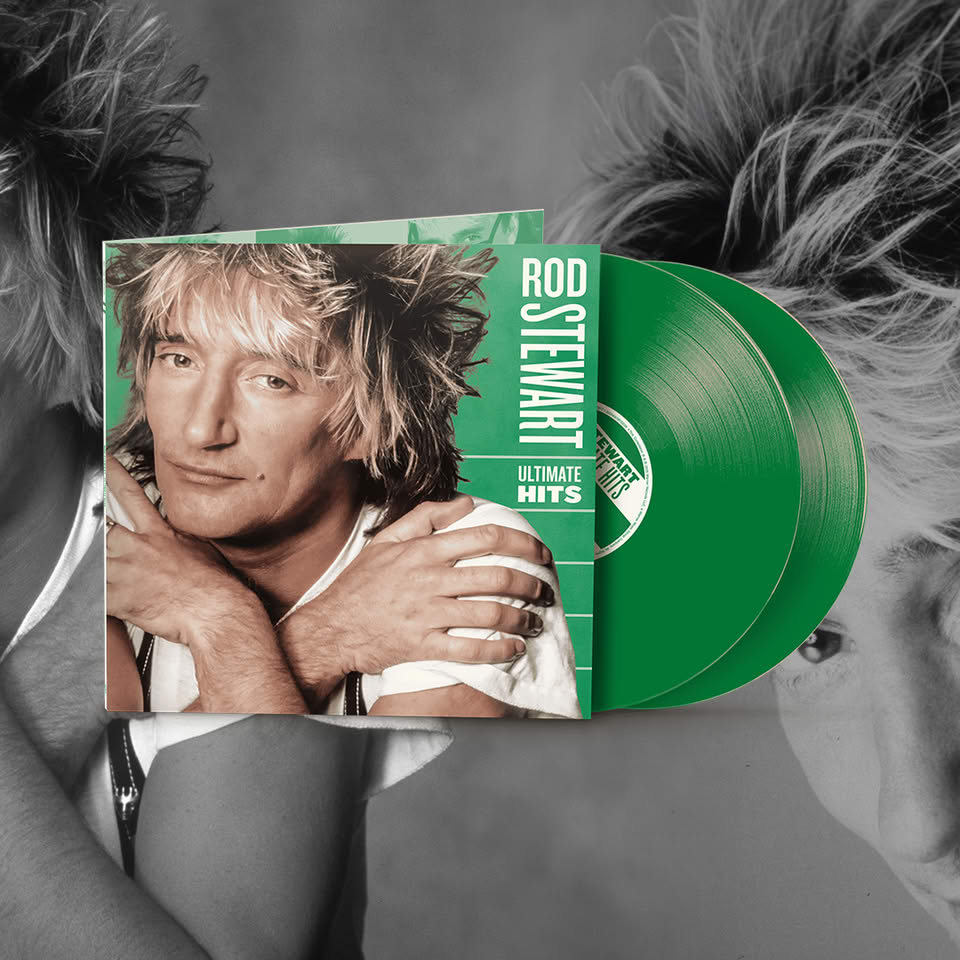“Rod Stewart Ultimate Hits” is released on June 27th and to celebrate the release we are bringing you the low down on all the classic tracks that have been brought together for the first time in the compilation that includes songs ranging from his 1971 hit, “Maggie May” to selections from 2024’s “Swing Fever,”
Today we focus on the Tom Dowd produced track “I Don’t Want to Talk About It”
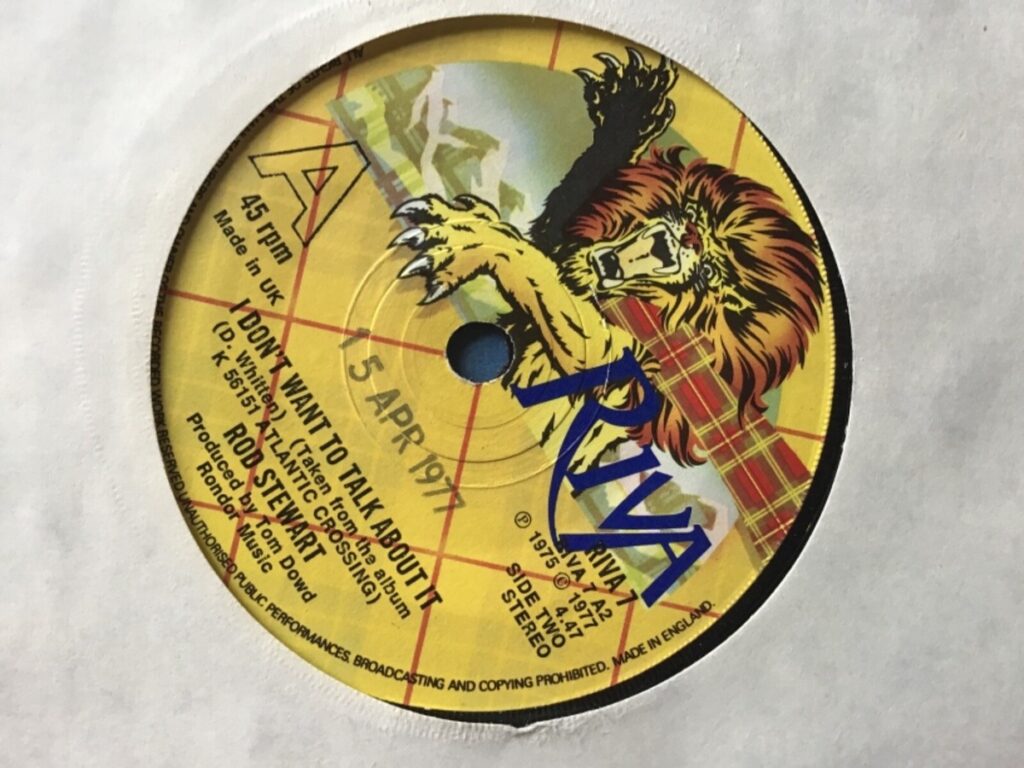
“I Don’t Want to Talk About It” is a song written by American guitarist Danny Whitten who was the guitarist in Neil Young’s backing band, Crazy Horse. who recorded and issued the song as the final track on side one of their 1971 debut album titled “Crazy Horse” The song was Whitten’s signature tune, but gained more fame when Rod covered the track for his 1975 “Atlantic Crossing” album

Rod recorded his version at Muscle Shoals Sound Studio in Sheffield, Alabama as a track for “Atlantic Crossing”. but later suggested to his record label Riva that it was clearly becoming a crowd favourite and was likely to do well if released as a single.
When it was finally released as a single in 1977, it topped the singles chart in the United Kingdom as a double A-side with “The First Cut Is the Deepest”.
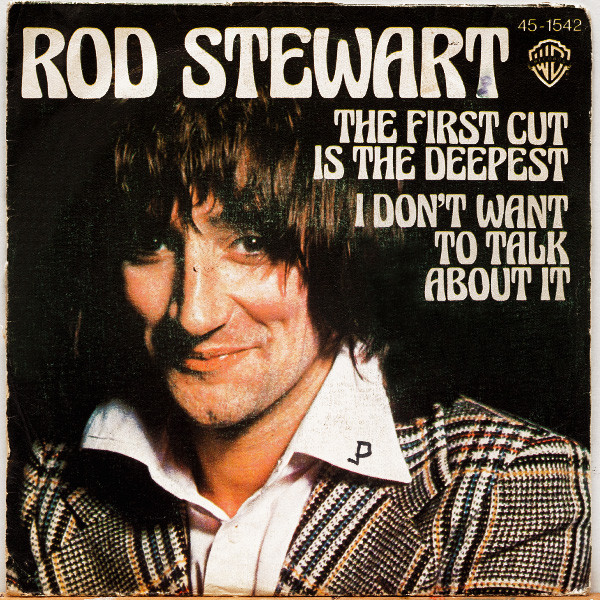
“I Don’t Want to Talk About It” was a firm live fans favourite that Rod played live at every show, It was at the Christmas 1976 concerts where he realised the crowd were singing the song word for word and when Rod stopped, the crowd carried on.
A year after “Atlantic Crossing”, “Tonight’s the Night” was released as the first single from the new album “A Night On The Town” the track peaked at number five in the UK. And was followed by the second single “The Killing of Georgie” that peaked at Number 2.
The third single planned was “First Cut Is The Deepest” a cover of the Cat Stevens song and Rod’s own Riva label and its management decided, following the concert reaction, to issue “I Don’t Want To Talk About It” as a double A side “First Cut Is The Deepest” had previously been a Top 20 hit for P.P. Arnold, in 1967.
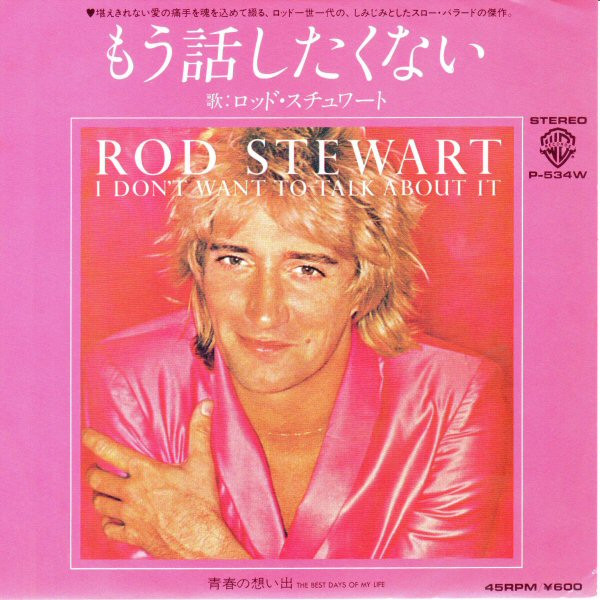
At the time Rod’s single was widely believed to have benefitted from being deliberately released in order to keep the BBC banned Sex Pistols‘ “God Save the Queen” off the top of the UK singles chart.
The UK was approaching the Queen’s Silver Jubilee and the Sex Pistols had released “God Save The Queen”, their anti-royalty song that was thought to mock the monarchy. It made number one on various music magazine charts. and entered the official singles chart at number 11 on the same week Rod was spending his third of four weeks at number one. Everyone was asking if the Pistols would knock Rod off the following week? They didn’t!, only climbing to number two and there were many accusations launched that the chart was fixed to avoid embarrassment on the official Jubilee week. The week after that, when Rod dropped to number two, the Pistols dropped to number four and “Lucille” by Kenny Rogers went to number one.
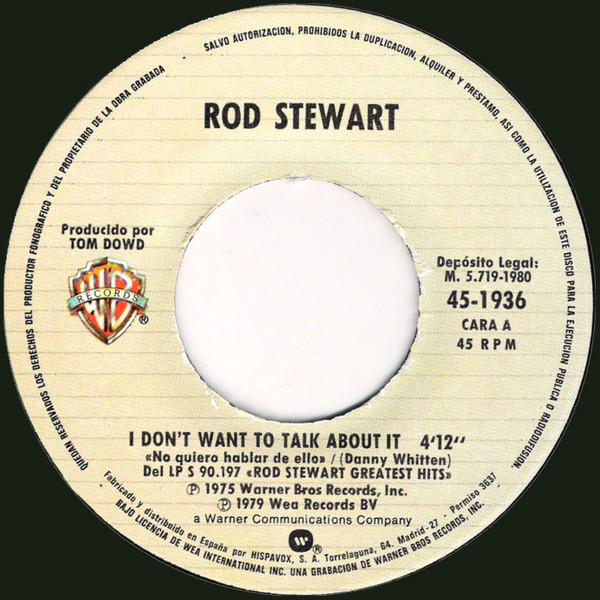
Sex Pistols manager Malcolm McLaren and others involved with the band suggested that the song was deliberately blocked from reaching number one by powerful figures in the music industry and the establishment but later admitted Rod probably got to number one fair and square.
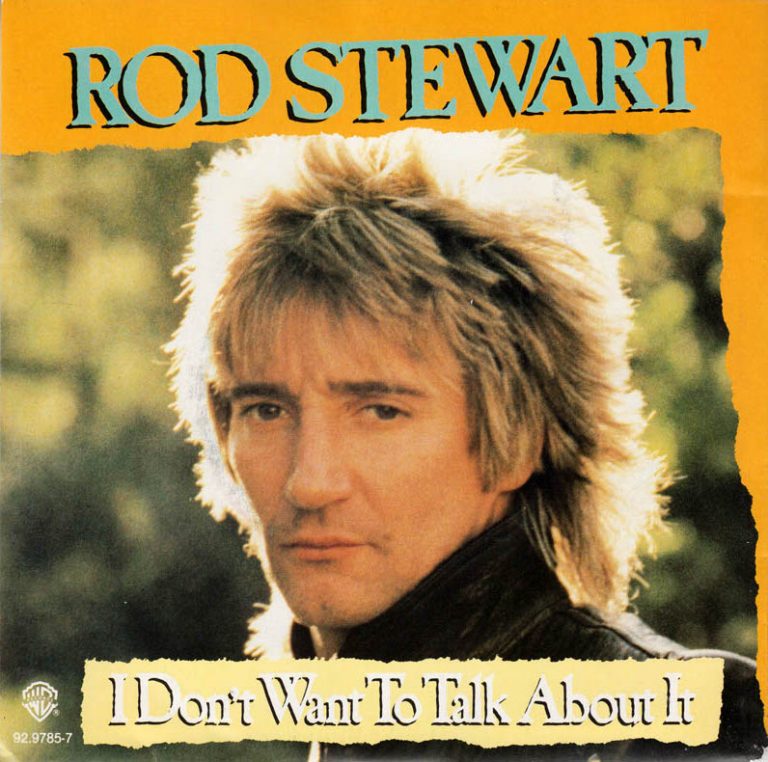
In February 2021, the song received a silver certification from the British Phonographic Industry for sales and streams of over 200,000.
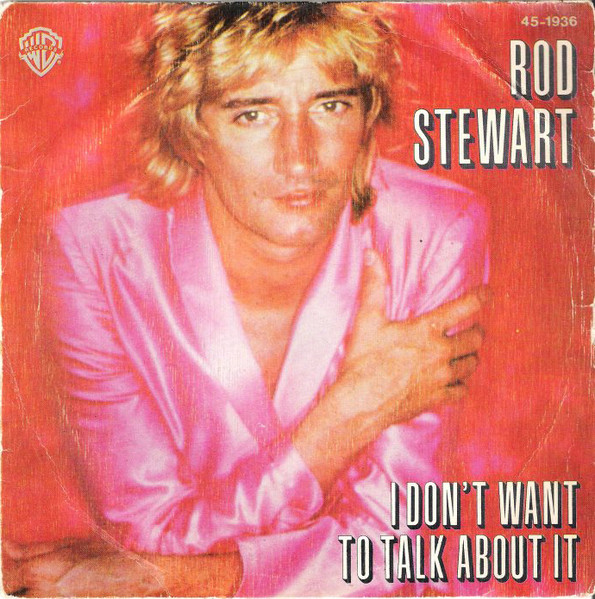
In the United States, it was released as a single with “The Best Days of My Life” on the B-side in December 1979 to promote Rod’s “Greatest Hits” album. It peaked at number 46 on the Billboard Hot 100 and number 44 Adult Contemporary.
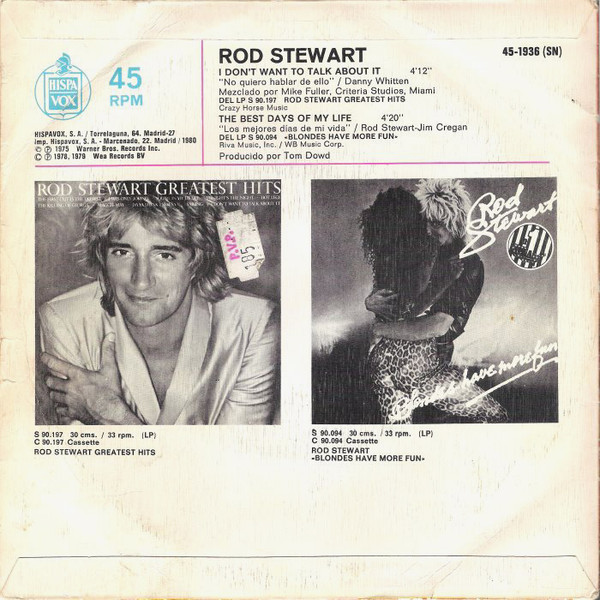
In 1989, Rod recorded a new version of the song for “Storyteller – The Complete Anthology: 1964–1990”. It was later included on “Downtown Train – Selections from the Storyteller Anthology”. The song received extensive airplay on adult contemporary radio stations in the United States as an album track, reaching number two on the Billboard Adult Contemporary chart.
Rod also sang the song as a duet with Amy Belle at his 2004 Royal Albert Hall concert and it is included in his DVD “One Night Only“. The official video of the performance has received over 1 billion worldwide Youtube views.
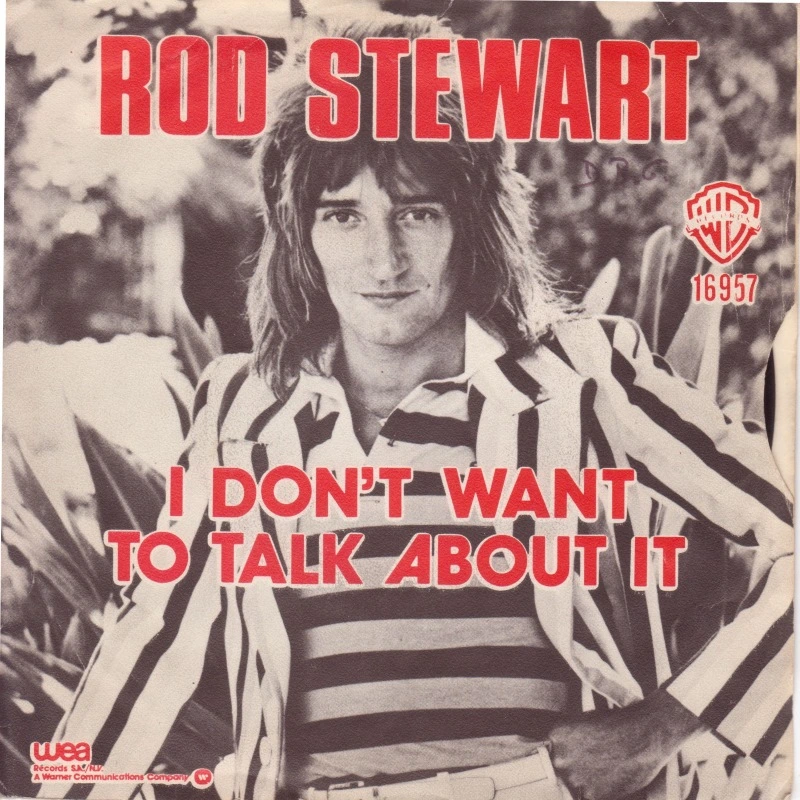
Danny Whitten was born in 1943 and by his mid-20s he had a cronic drug addiction. He suffered with rheumatoid arthritis and when he started taking heroin he found that it stopped the pain and so he became addicted, so much so that Young eventually had to let him go and therefore he never got to perform the song with Crazy Horse and within 18 months of the “Crazy Horse” album being released he was dead . but “I Don’t Want to Talk About It” will live forever.
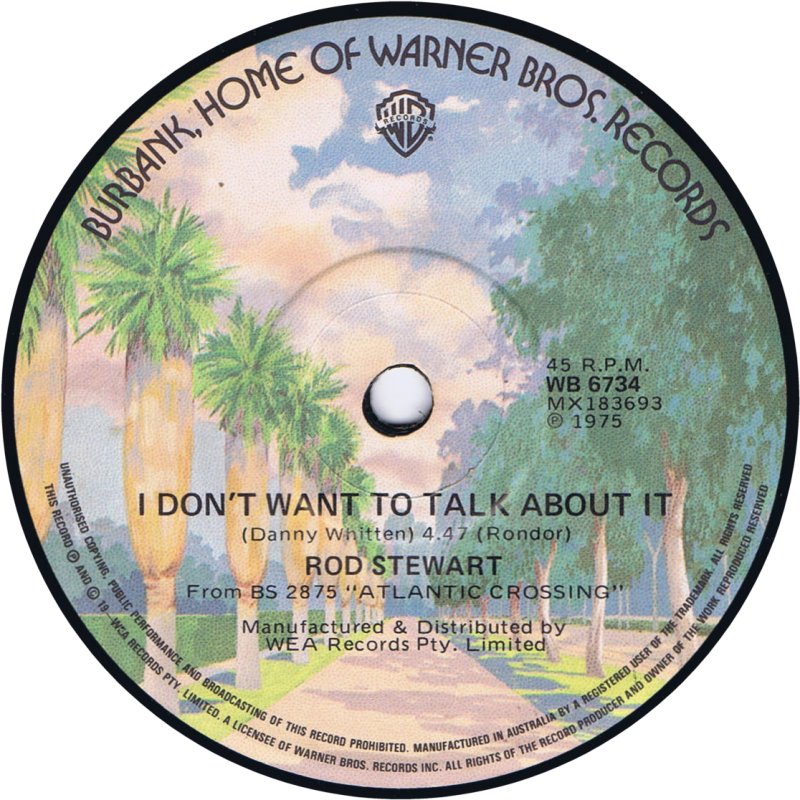
Other Cover Versions
In May 1984, English duo Everything But the Girl decided to try a cover of “I Don’t Want To Talk About It” and it became an unexpected hit reaching number 3 in the UK, Tracey Thorn who ironically had been a punk in her younger days has said that Rod had been regarded as “a heroic figure” in her home when she was growing up, and that her brother Keith owned the “albums with grimy-sounding titles like “An Old Raincoat Won’t Ever Let You Down”, and “Gasoline Alley”“. She herself had “always liked “Atlantic Crossing”“.
In 1988, Arthur Conley, (famous for his 1967 hit “Sweet Soul Music” a song Rod would sing live many times) sang his version live on Dutch television. Conley had previously changed his name to Lee Roberts whilst living in The Netherlands.
Other notable artists who have recorded versions of this song include Ian McNabb, Blue, Rita Coolidge, Billie Jo Spears, Dina Carroll, Freddie Starr, Robson Green, Ian Matthews, Nils Lofgren, Michael Ball, Andy Williams, Joe McElderry and Indigo Girls (on the Philadelphia soundtrack).
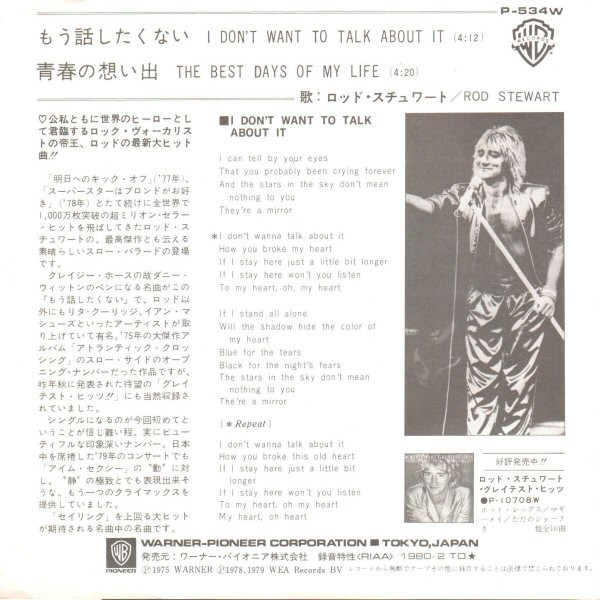
Chart (1977–1980)
Belgium (Ultratop 50 Flanders) 11
Belgium (Ultratop 50 Wallonia) 36
Canada Top Singles (RPM) 51
Ireland (IRMA) 4
Netherlands (Single Top 100) 3
New Zealand (Recorded Music NZ) 2
UK Singles (OCC) 1
US Adult Contemporary (Billboard) 44
US Billboard Hot 100 46
West Germany (GfK) 44
Chart (1990)
Canada Top Singles (RPM) 19
Canada Adult Contemporary (RPM) 3
US Adult Contemporary (Billboard) 2
Year-end charts 1977
Australia (Kent Music Report) 24
Atlantic Crossing Personnel
Rod Stewart – vocals
Jesse Ed Davis, Steve Cropper, Fred Tackett, Jimmy Johnson – guitar
Barry Beckett, Albhy Galuten – keyboards
Booker T. Jones – Hammond organ
Donald “Duck” Dunn, Lee Sklar, Bob Glaub, David Hood – bass guitar
David Lindley – mandolin, violin
Al Jackson Jr., Roger Hawkins, Nigel Olsson, Willie Correa – drums, percussion
The Memphis Horns – trumpet, trombone, saxophone
Cindy & Bob Singers, The Pets & The Clappers – backing vocals
String arrangements by Arif Mardin and James Mitchell
And don’t forget to get your free signed postcard if you order from Dig! store while stocks last


